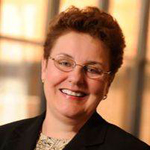Physicians can now take advantage of a new genetics test — one of the first of its kind to be offered in the United States — that can help determine the best treatment for cancer patients.
Genomics and Pathology Services at Washington University School of Medicine in St. Louis (GPS@WUSTL) is now offering a test for mutations in 28 genes associated with cancer. The genes in the test affect a variety of different types of tumors, including blood, lymph, lung, brain, bladder, kidney, skin, stomach, prostate and breast cancers.
Identifying specific mutations in these genes can help doctors decide which treatments are most likely to benefit individual patients, which is the goal of genomic (or personalized) medicine.
All of these genes already can be tested individually for mutations. But using GPS@WUSTL, physicians throughout the country can order the new test to simultaneously examine the genes most likely to influence treatment of a patient’s tumor.
According to GPS@WUSTL organizers, sequencing multiple genes at once is less expensive than sequencing the genes separately. The next-generation sequencing technique and the novel bioinformatics platform used to produce the data also will significantly improve the sensitivity and accuracy of the results.
Scientists envision the cancer genetics test as the first of many disease panels to be offered by GPS@WUSTL. Work is under way on similar panels that will influence the diagnosis and treatment of other disorders, including autism and kidney disease.

Seibert
“GPS@WUSTL is bringing the promise of human genomics to the clinic,” says Karen Seibert, PhD, director of GPS@WUSTL. “We use the latest gene sequencing technology and cross-reference the results to known treatment options for the patient’s particular mutations. In addition to patient care, our labs will support clinical trials aimed at identifying new ways to diagnose and treat disease.”
While costs for sequencing a patient’s entire genome are decreasing, it’s still not economically feasible to perform whole-genome sequencing for clinical treatment of patients. Sequencing of multiple genes known to influence a disease will produce the information physicians need to guide treatment decisions.
The services provided by GPS@WUSTL will be paid for by a mixture of revenue streams, including health-care insurers, hospitals, patients and federal research grants, and through partnerships with companies and foundations.
“Patients throughout the country can access GPS@WUSTL through their personal physician,” says John Pfeifer, MD, PhD, vice chairman for clinical affairs in pathology and immunology. “After we receive a patient’s tumor sample, results will be returned in days to weeks in a report identifying the mutations detected. We will also provide the names of specific drugs that target the mutations’ effects as identified in peer-reviewed medical literature.”
GPS@WUSTL administrators chose the 28 genes in the first test because all have implications for cancer therapy. The test can easily be adapted to add newly discovered mutations as they are clinically validated.
To describe how multiple genes can affect treatment, GPS@WUSTL Medical Director Shashi Kulkarni, PhD, cites acute myeloid leukemia (AML), a blood cancer.
“In AML, patients who have a mutation in a gene called FLT3 can be treated with a drug that suppresses the mutation’s effects, improving chances for recovery,” Kulkarni says. “Mutations in another gene, DNMT3A, suggest a poor prognosis and call for initial treatment with a bone marrow transplant, a riskier therapy normally reserved for patients whose AML recurs after chemotherapy.”
As another example, some lung cancers harbor a mutation in a gene called EGFR. These tumors can be killed much more effectively by specific chemotherapy drugs, so knowledge of the EGFR status helps oncologists choose the best treatment regimen.
The sensitivity of the new sequencing techniques used by GPS@WUSTL will be important for cancers, many of which are genetically unstable, notes Jeffrey Milbrandt, MD, PhD, the James S. McDonnell Professor and head of the Department of Genetics. This instability results in tumors that contain cells that are genetically different.
“It’s possible that an important mutation that makes the tumor harder to kill will be present only in a small percentage of tumor cells,” he says. “The new sequencing technology we’re using substantially increases our chances of detecting such critical mutations.”
GPS@WUSTL faculty and technicians will work in laboratories designed and maintained to meet rigorous clinical testing standards.
“All of our labs will meet the requirements of both the College of American Pathologists (CAP) accreditation and Clinical Laboratory Improvement Act (CLIA) certification,” says Herbert W. Virgin IV, MD, PhD, the Edward Mallinckrodt Professor and head of the Department of Pathology and Immunology. “Those are the gold standards of laboratory testing, and GPS@WUSTL will be among a group of relatively uncommon genetic testing services in the nation to have both of them.”
Washington University’s new Genome Technology Access Center (GTAC) provides the genetic data interpreted by GPS@WUSTL. Bioinformatics experts in GPS@WUSTL have built a clinical genomicist workstation that can automatically insert references to medical literature that can help doctors assess the treatment options.
“Having the system automatically start the interpretive work will help loosen a major bottleneck that has made it difficult to provide physicians with results of genomic tests in a timely fashion,” says GPS@WUSTL Bioinformatics Director Rakesh Nagarajan, MD, PhD.
For more information, visit gps.wustl.edu or call (314) 747-7337.
Washington University School of Medicine’s 2,100 employed and volunteer faculty physicians also are the medical staff of Barnes-Jewish and St. Louis Children’s hospitals. The School of Medicine is one of the leading medical research, teaching and patient care institutions in the nation, currently ranked fourth in the nation by U.S. News & World Report. Through its affiliations with Barnes-Jewish and St. Louis Children’s hospitals, the School of Medicine is linked to BJC HealthCare.